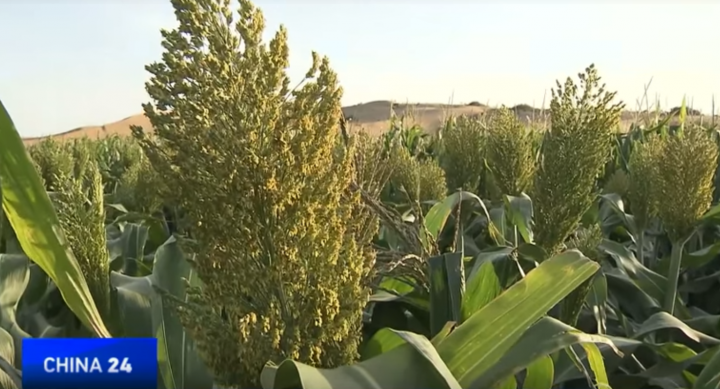As China Daily reported at the fourth plenary session of the 19th session of the Central Committee of the Communist Party of China, China’s ecological issues will also be intensively discussed.
As early as 2012, Xi Jinping, the then newly elected general secretary of the Communist Party, who is now in power, had proclaimed the establishment of an ecological civilization. This means more than classical environmental protection. What is meant rather is that the entire society should behave in harmony with nature, also culturally, not only technologically. According to Xi Jinping, ecology in harmony with nature should permeate the entire social life.
Of course, China is still a long way from this. But the efforts to reach this high goal are much more intensive than in Europe and the USA. The first successes have been recorded since then, air pollution is falling significantly in many cities, water bodies are gradually becoming cleaner again, green areas and reforestations are passing through cities, rural regions into the deserts. Nowhere else in the world are environmental technologies such as solar, wind power and electric vehicles at such a high level of industrial production.
China continues to be one of the largest emitters of greenhouse gases, and the planned construction of further coal-fired power plants throughout the country in particular must be prevented as a matter of urgency if technological progress is to make it a global leader in climate protection. Despite the enormous progress mentioned above, there is a need for further action in China not only in terms of climate and environmental policy, but also especially in the areas of civil liberties, democracy and human rights.
The tightly led Communist Party under Xi Jinping held its 19th Central Committee meeting in Beijing from 28 to 31 October. At the same time, a major congress on ecological civilization was held on October 31 in the provincial capital of Jinan, which has a population of around 10 million, in the eastern province of Shandong, which has been heavily industrialized. Ecological issues, in particular the rapidly progressing climate change and its solutions, were discussed intensively with great, typically Chinese splendour, many Chinese political celebrities, scientists and with great media attention.
In my speech in the opening part of the conference I pointed out with much positive resonance the two pillars of a functioning climate protection: a zero-emission economy and the construction and preservation of large carbon sinks and green areas. At the heart of a zero-emission economy was the demand for 100% renewable energy by 2030, even in China, knowing full well how difficult this path will be with the country’s gigantic dependence on coal. Especially the global simulation of the Energy Watch Group together with the Technical University Lappeenranta for the full supply of the earth only with 100% renewable energies met with enormous interest.
To establish the major strategic government project “New Silk Road”, I proposed to expand the existing railway line for freight traffic from Chongking in China via Kazakhstan and Russia to Duisburg as a modern high-speed railway for passengers. This would entail a sharp reduction in Eurasian air traffic. Parallel to the high-speed line, an electrical high-voltage grid could be built to operate the trains with the large quantities of wind and solar power captured in the deserts and also to supply the large centers along the route with green electricity.
In many conversations with scientists and politicians I could see that the construction of an ecological civilization in China are not only empty words like the alleged climate protection policy of the CDU/CSU/SPD lead federal government in Germany. China is seriously looking for new ways, together with science and its own economic export interest, to achieve the goal of technology leadership in environmental protection, renewable energy and zero emission mobility.
My talks with Dr. Chen Cungen, Professor at North West University Beijing, were impressive. Decades ago, as a young researcher, he started a German-Chinese research project together with the Technical University of Munich to reduce wind erosion. This resulted in the world’s largest greening campaign, a reforestation in the Gobi Desert on an area the size of Germany.
An unbelievable ecological success for which Dr. Cungen is rightly named as the father. His life’s work is an excellent example of how decades of perseverance and goals initially considered impossible (reforestation in the inhospitable Gobi desert) can ultimately lead to phenomenal results.
About the author:
Hans-Josef Fell is President of the Energy Watch Group, an international network of scientists and parliamentarians to investigate the availability and scarcity of fossil and nuclear energy resources and the potential for renewable energy expansion. From 1998 to 2013 he was a member of the German Bundestag and already at that time he was committed to 100% renewable energies. He has received numerous awards for his commitment, including the Nuclear-Free Future Award of the international anti-nuclear movement. More information can be found on his website Hans-Josef Fell – 100% Renewable Energies!






